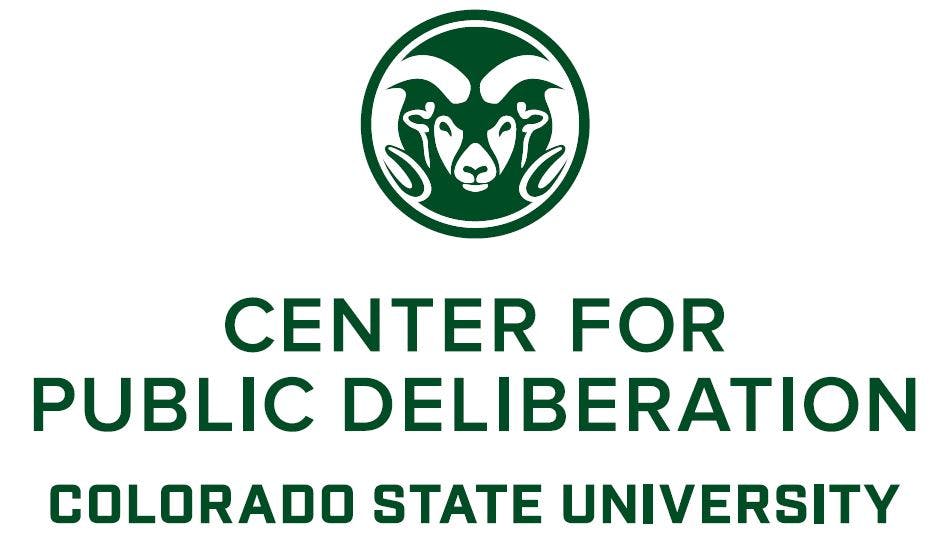Rethinking Public Engagement Summit
This summit is part of GFOA's Rethinking Budgeting initiative.
About the Summit
GFOA's Rethinking Public Engagement Summit was held November 7-10. Featuring nearly 20 sessions, the summit brought together academics, researchers, civic technology experts, and local government practitioners from across the globe to finally begin to rethink public engagement.
Watch Summit Sessions
Note: Videos have been edited for brevity and full versions are available on GFOA's Learning Management System for summit registrants to watch.
Defining the Problem
This 50-minute session will introduce the four forces that call for Rethinking Public Engagement.
https://www.gfoa.org/rethinking-public-engagement-summit
Engaging with Complexity: Adapting Democratic Discourse to Complex Problems
Many of the challenges that most inspire the passion of citizens are complex problems. Complex problems pose a challenge to public engagement. Because they defy easy answers, they contribute to a sense of cynicism about what collective action, through government, can achieve.
This session examines how local governments can help the public engage with complexity by recognizing the nuances of problems, moving past polarizing framings of issues, and improving how they work together to address shared problems.
https://www.gfoa.org/rethinking-public-engagement-summit
Sense-making: Navigating the Information Tsunami
The “information tsunami” that buffets our society challenges our ability to make sense of the world around us. The mechanisms for expressing and gathering opinions have exploded, but our ability to make sense of them and create mutual understanding have significantly lagged.
Public engagement supports government in creating a space for all voices to be heard, and through deliberation, identify opportunities to have the difficult conversations needed to address community issues and build common ground upon which to act.
This session reviews how local governments can move along a progression that starts with gathering data from public input; which then turns that data into information and knowledge about the issues that most impact the community; and, finally, arrives at a deeper understanding and wisdom of how to collaborate and co-create solutions to those issues.
Rights and Responsibilities: Finding the Balance for a Renewal of Citizenship
Citizens have rights but also responsibilities to uphold a democratic government that guarantees those rights. In recent years, there has been more emphasis on individual rights and less on the collective responsibility to maintain the system that guarantees those rights. This can result in people placing demands on the local government without considering the need to address the issues the community faces.
This session examines how local government can reinvigorate the sense of the responsibility citizens have under a democratic system of governance and find balance between rights and responsibilities. This means going from asking citizens “what do you want?” to asking “what should we do together, the government and citizens?”
https://www.gfoa.org/rethinking-public-engagement-summit
Dealing with Disrupters: Stemming the Rising Tide of "Bad Actors" in Public Engagement
Bad actors don’t play by the rules of democratic discourse. They disrupt public engagement, eschew compromise, and generally impede productive conversation. However, not all bad actors are the same.
This session differentiates between types of bad actors. This typology will be used to show us strategies that can be employed to positively engage with bad actors or, at least, contain the damage they can do and preserve the quality of the engagement for other participants.
https://www.gfoa.org/rethinking-public-engagement-summit
Designing Engaging Institutions: Critical Capacities for Democratic Discourse in Local Governments
High quality democratic decisions depend on high quality democratic institutions. Institutions ensure that the capacity for public engagement is on-going. But what are the capacities local governments need? And who should provide those capabilities?
This session explores the skills, processes, and technologies that local governments need. It will also examine options to get them, including staffing, contracting, community co-producing and more.
https://www.gfoa.org/rethinking-public-engagement-summit
Going from the Politics of Public Cynicism to the Politics of Co-Creation
The politics of cynicism results when complex problems meet with a delegitimized government and a public fractured into competing groups. The politics of cynicism rejects compromise as tantamount to capitulation, making it difficult to reconcile or transcend competing interests. Local governments can at least partially offset the politics of cynicism by fostering a politics of co-creation. Co-creation promotes common understanding and jointly working towards solutions.
This session discusses how public engagement can be designed to promote common understanding and jointly work towards solutions. We will cover topics such as how to recognize the best opportunities for co-creation and techniques for co-creation.
https://www.gfoa.org/rethinking-public-engagement-summit
Designing Public Engagement to Work for Public Officials
Public officials stand to gain a lot from high quality public engagement, but it won’t go far if officials are not supportive of it. Some officials have concerns with public engagement that prevent them from embracing it.
This session identifies common concerns that public officials have with public engagement and how it can be designed to address those concerns.
https://www.gfoa.org/rethinking-public-engagement-summit
Public Engagement in the Age of Anti Expertise
Skepticism of expertise is widespread, meaning that public is less likely to defer to expertise of local government officials. Instead, they bring their own research to public meetings and elevate lived experience over expert opinion. Public engagement must be designed accordingly.
This session explores how public engagement can bring together the public and experts in a way that gets the most from the different perspectives each bring. We will explore how to distinguish between the issues that are best suited for the public or for experts and how to design public engagement accordingly.
https://www.gfoa.org/rethinking-public-engagement-summit
Competing with Netflix: Making Democracy Fun
The public has more things competing for their attention than ever before. Local government has to compete for attention in order for people to engage. Fortunately, much has been learned in recent years about how to make things fun!
This session explores how the science of games and process design can be applied to public engagement, see how it has been applied in practice, and discuss possible drawbacks.
https://www.gfoa.org/rethinking-public-engagement-summit
Defining Reality: Misinformation, Disinformation and Public Engagement
Today’s information environment allows people to define their own reality. Bad actors complicate this through pollution of the information environment with mis- or disinformation. Yet some common understanding of the issues the community faces is necessary for productive discussion.
This session discusses how to navigate a fraught information environment and methods to help participants build a shared understanding of complex issues.
https://www.gfoa.org/rethinking-public-engagement-summit
Participatory Budgeting and Civic Tech
Participatory budgeting is a groundbreaking format of public engagement. It allows citizens either to contribute in defining budget priorities of their municipality, or to propose projects which will benefit the entire community. In this talk, we explore the main advantages and the challenges of participatory budgeting, with a particular focus on the use of ethical, open source digital tools to boost participation and enhance the impact of this kind of initiative.
https://www.gfoa.org/rethinking-public-engagement-summit
Why Budget Engagement Should be Hard
When it comes to engaging the public on the budget the goal should be that by the time residents are done they should think to themselves, “this is hard.” Successful engagement puts residents in the shoes of decision makers and lets them weigh tough tradeoffs that take costs and available resources into account. This presentation will cover success stories that focus on the three C’s of budget engagement: context, consequences and constraints.
https://www.gfoa.org/rethinking-public-engagement-summit
Blockchain and its Potential for Civic Technology
Social innovation communities worldwide have recently focused on local governance and blockchain technologies. In this panel, we explore the intersections of these trends, highlighting how we might apply blockchain technologies to make cities stronger. These ideas range from improvements to existing processes to new forms of social organization, partly enabled by new information technologies.
https://www.gfoa.org/rethinking-public-engagement-summit
An Intro to the Science of Collective Intelligence
This session is intended for people who are not familiar with the concept of collective intelligence. We will review examples of collective intelligence that are found in nature and use them to learn about the basic collective intelligence principles. The session will end by focusing on how organizations can apply the principles of collective intelligence to improve decision-making, business and governance.
The audience will leave with basic knowledge of the importance of information independence, group diversity and local interactions for the emergence of collective intelligence.
The session is intended to generate interest in the concept of collective intelligence and leave the audience wanting to learn more about it. It will focus on breadth rather than depth.
https://www.gfoa.org/rethinking-public-engagement-summit
Citizen Trust and Technology
Like many institutions, city governments are experiencing a trust deficit, making it difficult to deliver services. As a result, many are deploying digital tools and data-analysis techniques to build trust. This session explores the dimensions of the trust problem, from how institutions see it to the approaches they take to solve it. Concerted efforts are being made by city leaders and technologists to enhance the credibility and/or reliability of public sector institutions. Understanding precisely how these efforts connect both in intention and execution is urgently needed in this time of considerable uncertainty within urban governance. The COVID-19 pandemic has exposed insufficient public health systems, abrupt transitions in work that have significantly increased office and restaurant vacancies, and raised consciousness (especially in the United States) of racial injustices. Cities have no choice but to solve for trust. This presentation and dialogue is an opportunity to create a learning community around these important issues.
https://www.gfoa.org/rethinking-public-engagement-summit
Decentralizing Public Engagement
Emerging technologies for citizen participation in local government policy- and decision-making have been limited to two primary forms of engagement: public projects through workshops or charrettes, and in deliberations of legislative bodies, i.e., council meetings. In today’s digital society, technology platforms can enable a 24/7/365 solution for resident input and feedback in all areas of policies and decisions. The key is using technology and culture change to decentralize engagement practices and applying it throughout the entire institution, including to outdated and ineffective conventional forms of resident participation.
Governments’ growing reliance on multi-channel communications using social media casts a wide net that neither reaches the intended audience or provides pathways for effective input and feedback. And continued use of and reliance on conventional methods to involve residents such as boards, commissions and task forces is limited, exclusive and outdated. The potential for local governments to harness a collective body of public knowledge through meaningful, structured collaboration is here. Enabling greater public input solicits more knowledge and ideas for improving decision making and trust.
https://www.gfoa.org/rethinking-public-engagement-summit

